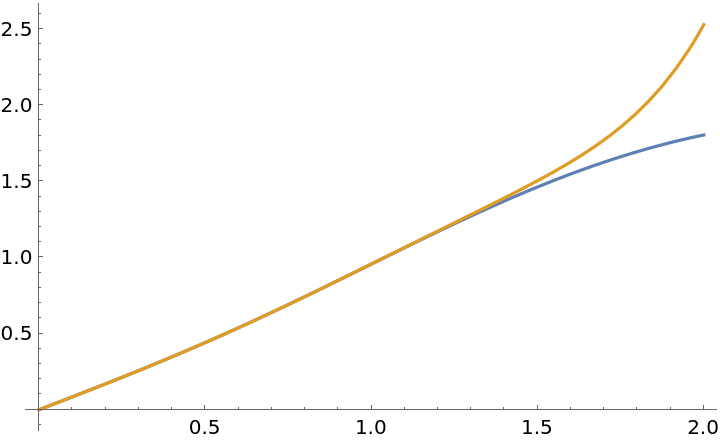Wolfram Function Repository
Instant-use add-on functions for the Wolfram Language
Function Repository Resource:
Find a numerical approximation of a series expansion of a function
ResourceFunction["NSeries"][f,{x,x0,n}] gives a numerical approximation to the series expansion of f about the point x=x0 including the terms (x-x0)-n through (x-x0)n. |
| "Radius" | 1 | radius of circle on which f is sampled |
| WorkingPrecision | MachinePrecision | precision used in internal computations |
This is a power series for the exponential function around x=0:
| In[1]:= |
| Out[1]= |  |
Chop is needed to eliminate spurious residuals:
| In[2]:= |
| Out[2]= |
Using extended precision may also eliminate spurious imaginaries:
| In[3]:= |
| Out[3]= |
Find expansions in the complex plane:
| In[4]:= |
| Out[4]= |
Find Laurent expansions about essential singularities:
| In[5]:= |
| Out[5]= |  |
Series will not find Laurent expansions about essential singularities:
| In[6]:= |
| Out[6]= |
Use "Radius" to pick the annulus within which the Laurent series will converge:
| In[7]:= |
| Out[7]= |  |
Laurent series for x≥3:
| In[8]:= |
| Out[8]= |
Changing "Radius" can improve accuracy:
| In[9]:= |
| Out[9]= |  |
| In[10]:= |
| Out[10]= |
A function defined only for numerical input:
| In[11]:= |
Find a series expansion of f:
| In[12]:= |
| Out[12]= |
Check:
| In[13]:= |
| Out[13]= |  |
NResidue can also be used to construct a series of a numerical function:
| In[14]:= |
| In[15]:= |
| Out[15]= |
Using NResidue:
| In[16]:= |
| Out[16]= |
NSeries can have aliasing problems due to InverseFourier:
| In[17]:= |
| Out[17]= |  |
The correct expansion is analytic at the origin:
| In[18]:= |
| Out[18]= |
SeriesData cannot correctly represent a Laurent series. Here is the square of the series of ![]() :
:
| In[19]:= |
| Out[19]= |  |
Here is the SeriesData representation of the Laurent series of ![]() :
:
| In[20]:= |
| Out[20]= |  |
Find the series expansion of the generating function for unrestricted partitions:
| In[21]:= |
| In[22]:= |
| Out[22]= |
Check:
| In[23]:= |
| Out[23]= |
Wolfram Language 11.3 (March 2018) or above
This work is licensed under a Creative Commons Attribution 4.0 International License